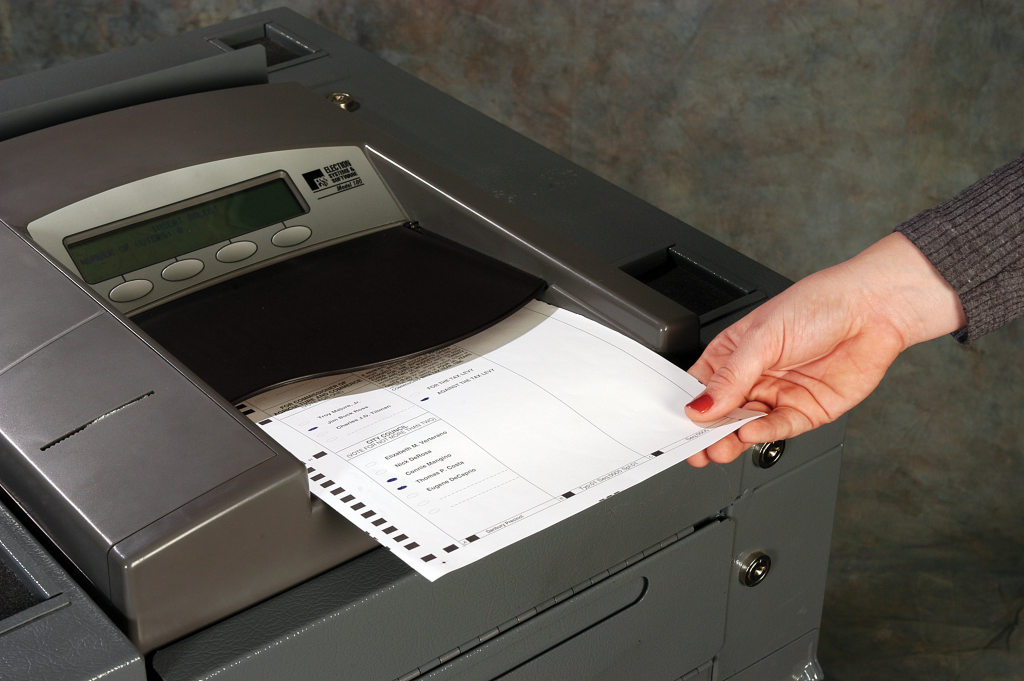$200 Million of Your Money Wasted

For most people, government is simply the sum of the services it provides: security and safety, for example, in the form of police and fire departments; education, in the form of schools and libraries; and transportation, in the form of roads, harbors and airports. Citizens can measure their government by how effectively it provides those services.
Businesses, though, often see another side of government. That’s because the state government relies on private contractors and consultants to provide many of these services. Contractors design and build the state’s schools and highways; consultants manage everything from state hospitals to social services. Indeed, government is the largest single customer of Hawaii businesses, spending more than a quarter of the state’s $7 billion budget on contracted goods and services. With billions at stake, clearly another measure of government is how efficiently and fairly it procures those services. And yet, by almost any measure, the state’s procurement process is broken.
The easiest way to gauge how dysfunctional the system has become is to glance through reports from the state auditor’s office. In department after department, report after report, procurement practices are found wanting. Indeed, many of the most prominent controversies faced by the state government in recent years have been procurement failures at heart: Two 2009 audits criticize the Department of Business, Economic Development and Tourism for flouting procurement laws by awarding a contract to a firm with ties to the department’s director rather than higher-ranking competitors. The latter DBEDT audit goes so far as to recommend the director’s removal.
Similarly, audits of the state Department of Education, University of Hawaii, Highway Administration, Department of Land and Natural Resources and Hawaii Tourism Authority have all found improper and incompetent procurement conduct. Most of these reports received considerable publicity when they were released, bringing a period of greater scrutiny for the agencies, but they failed to generate more general interest in procurement. Taken together, though, the auditor’s reports and a collection of related decisions by the Office of Administrative Hearings and the U.S. Circuit Courts suggest the state’s procurement difficulties are more widespread (and costly) than any single scandal.
Recent Cases of Wasteful Procurement
Contract No. 1: Widening of Queen Kaahumanu Highway
State Agency: Department of Transportation
Summary: In 2006, the state Legislature appropriated $40 million to widen part of Queen Kaahumanu Highway on the Big Island from two to four lanes. In December 2007, the state Department of Transportation issued a notice to bidders for a design/build contract for Phase II of the project, from Kealakehe Parkway to Keahole Airport Road, with an estimated cost of $60 million. In January 2008, DOT awarded the contract to the low bidder, Goodfellow Bros. Inc. Almost immediately, Kiewit Pacific Co., one of the other two qualified bidders, protested the award, claiming the Request for Proposals was ambiguous and Goodfellow’s bid was nonresponsive to the RFP. So, DOT rescinded the award and again put the contract out for bid. The next December, DOT again awarded the contract to Goodfellow. This time, Hawaiian Dredging, the other qualified bidder, protested that, among other things, the Goodfellow bid failed to meet the basic terms of the RFP. DOT denied the protest, and Hawaiian Dredging appealed to the Office of Administrative Hearings at DCCA. On April 3, 2009, the hearing officer found the Goodfellow bid “unresponsive” and ordered the contract to be re-bid again. This December, DOT issued a new RFP for the project, while simultaneously appealing the OAH ruling to the Circuit Court.
Findings: The inability of DOT engineers and contracting officials to write a clear, unambiguous request for proposals, or to effectively deal with the confusion of contractors during pre-bid consultations, resulted in at least a four-year delay in the highway project, greatly frustrating Kona residents. Also frustrated are the bidding contractors, who presumably all acted in good faith. All have incurred legal fees, lost time and the costs of proposal development. For taxpayers, the costs include lost time and manpower due to repeated procurements, plus extensive legal costs. It’s still unclear when construction will begin.
Contract No. 2: Electronic Voting Machines
State Agency: Office of Elections
Summary: In 2007, the Office of Elections issued an RFP for the lease of electronic voting machines and the purchase of election services for elections from 2008 through 2016. In 2008, the office awarded the contract to Texas-based Hart-InterCivic, which bid $43.4 million. The other qualified bidder, Nebraska-based Election Systems & Software, whose bid was only $18.1 million, protested on the grounds that the Office of Elections didn’t adequately justify the $25.3 million discrepancy in price between the two bids. The office denied the protest, and Election Systems & Software appealed to the Office of Administrative Hearings. The hearing officer found that it was, indeed, the duty of the Office of Elections to do a cost/price analysis. In response, the state’s chief election officer conducted a cost/price analysis himself, concluding that the Hart-InterCivic price was justified. Again, Election Systems & Software appealed to OAH, on the grounds that the chief election officer wasn’t qualified to do a cost/price analysis and that his analysis was inadequate and misleading. In issuing a summary judgment, the hearings officer agreed with Election Systems & Software, finding, among other things, that the state’s chief election officer had “acted in bad faith.” The Office of Elections appealed to Circuit Court.
Findings: The Office of Elections seems to have been predisposed to Hart-InterCivic technology, but failed to write a request for proposal reflecting this. Although the selection committee determined that ES&S technology was more than adequate, election officials were intent on selecting Hart-InterCivic, regardless of the 140 percent price difference. The Office of Elections’ failure to address the price doesn’t simply violate the State Procurement Code, it violates the ethical obligations of those entrusted with taxpayers’ money.
Moreover, it reflects the chief elections officer’s complete lack of experience in both procurement and elections. His desultory and unprofessional execution of the cost/price analysis ordered by OAH borders on criminal negligence. For example, he made no accounting for the fact that the Hart-InterCivic bid included the full purchase price of the voting machines, even though the contract was a lease. In addition, the Hart-InterCivic cost justification doesn’t account for more than $11 million, nearly 20 percent of the contract price. Even so, delays caused by the protracted litigation required the state to use Hart-InterCivic services for the 2008 elections before terminating the contract. In this settlement, taxpayers paid about $3 million more than what OAH had determined was already unreasonable.
The former chief elections officer did not return repeated calls by Hawaii Business for comment.
Contract No. 3: System to Monitor Airport Taxis
State Agency: Department of Transportation
 Summary: In 2000, DOT awarded Ted’s Wiring a $1.5 million contract to develop and install a system to track if taxis paid correct fees at Honolulu
Summary: In 2000, DOT awarded Ted’s Wiring a $1.5 million contract to develop and install a system to track if taxis paid correct fees at Honolulu
International Airport. The project was scheduled for completion by May 2003 and $1.3 million of the contract has already been invoiced and paid. However, despite numerous extensions and the threat of fines, seven years later, the work still has not been finished. In addition, the airport seems to have paid Ted’s Wiring more than $20,000 in 2005 for unrelated work completed in 1986. In May 2009, following publicity about the problem, the state initiated default proceedings against Ted’s Wiring.
Findings: Confusing RFPs and a consistent lack of follow-up or supervision plague airport contracting. The result is the potential for waste and fraud. This is exacerbated by the excessively cozy relationships between airport authorities and contractors. For example, although Ted’s Wiring, a long-time airport contractor, was threatened with fines, in the end, airport authorities assessed no penalties. The appearance of special treatment is not an idle concern: In 2007, several airport officials and contractors were convicted in a bid-rigging scandal that cost the state $4 million. With hundreds of millions of dollars in airport contracts in the works, the efficiency and fairness of the agency’s procurement process is more important than ever.
Who’s to Blame
One expert with strong views on Hawaii’s procurement mess is Terry Thomason, education chair of the Hawaii Procurement Institute, and an attorney specializing in public contracts at the law firm of Alston Hunt Floyd & Ing. (Thomason and other AHFI attorneys represent Election Systems & Software in its dispute with the Office of Elections.) Thomason divides Hawaii’s procurement troubles into three categories. There are a few “bad eggs,” he acknowledges, officials like the state’s former chief elections officer who operate in bad faith. The second kind of procurement problem, and more common, Thomason says, is like the airport official, “kind of a slow thinker – they don’t know how to do it correctly, so they give out periodic payments. But 99 percent of these are honest mistakes.” However, according to Thomason, the greatest cost to taxpayers is the third category: the state’s piecemeal approach to contracting.
“Scan the state procurement office Web site,” Thomason says, “and you will see a multitude of contracts for minor construction/repair/maintenance. For instance, you will see DOE projects for schools that include individual contracts for roofing, plumbing, painting, etc. Often, these requirements are at the same school or schools in the same area. All of those contracts were competed separately through the entire solicitation process – with potential for protests on each requirement – and separate contract awards for each.” For each procurement, he says, time is needed to issue the solicitation, perform evaluations, award a contract and resolve any protests. Each repetition, each delay adds to the cost of the project.
“It’s inefficient,” Thomason says. “It’s mowing the grass with scissors.”
Better Ways
He points out that there are much more effective ways to handle procurement. Federal contracting officers at Pearl Harbor or Schofield Barracks routinely use techniques like multiple-award-task-order contracts or indefinite-delivery/indefinite-quantity contracts to speed up procurement. “Army and Navy contracting agencies anticipate that requirements will arise,” Thomason says. MATOC or ID/IQ contracts allow them to issue solicitations in advance, even before money is appropriated, so projects can get started as soon as the need arises. With the state, that’s just the beginning of the process.
What’s more, Hawaii’s slow, incremental approach to procurement may cost the state federal money. For example, our inability to quickly award contracts for projects may be behind our poor ranking in spending federal stimulus funds – a Congressional panel ranked Hawaii 48th out of 50 states. The state’s procurement system simply can’t get contracts out the door quickly enough. For Thomason, this is particularly galling. “We should be the fastest,” he says. “We’re a tiny little state with a very defined area. And we have experts down the road who are doing many different types of contracts, more of them, and faster.”
The costs of our broken procurement system are enormous. Consider just our three case studies: millions of dollars wasted in legal fees and delayed work at the Queen Kaahumanu Highway widening; more than $25 million nearly squandered at the Office of Elections; $1.3 million spent on nothing at Honolulu Airport. At that rate, procurement looks like a primary cause of our budget shortfall. Thomason believes this waste amounts to 10 percent to 20 percent of our spending. “Are we out of money?” he asks. “I don’t think we are. If you just look at the things that are done repeatedly, you think, ‘Wait a minute; we could easily save 10 percent here.’ I think our budget for contracts is in excess of $2 billion a year. Just 10 percent would be more than $200 million. That would make breathing a lot easier for budget negotiators down at the Legislature.”
State Sen. Norman Sakamoto, who is interested in procurement issues, believes Thomason’s estimates are reasonable. “I would say 20 percent is high,” he says. “But if we look at global costs, I’m comfortable with 10 percent. It’s certainly more than a couple percent.”
There’s no sign, though, that the state is prepared to make changes. To begin with, the understaffed State Procurement Office (SPO), which should be the center for innovation and reform, has a very narrow definition of procurement. State procurement officer Aaron Fujioka likes to point out that procurement technically takes place in a very short window, usually 30 to 90 days. Strictly speaking, he says, procurement is simply the process of announcing an invitation for bids or a request for proposals, the steps used to select among bidders, and the rules for identifying winning bids. “People think the process is this big,” Fujioka says, his arms outstretched, “but really only this part is procurement,” he adds, bringing his hands close together. For instance, he says, the beginning of the process – writing accurate and unambiguous requests for proposals – is outside the scope of procurement. That’s planning. Likewise, making sure contractors fulfill their obligations in a timely manner is not procurement. That’s project management.
Many experts believe the SPO should take a more expansive view of procurement. State auditor Marion Higa argues that, because of the principles involved – creating a level playing field for contractors and getting good value for the taxpayers’ dollars – procurement should extend down to the departments and agencies writing RFPs. “He (Fujioka) is correct in that it’s not within his jurisdiction, per se; but as SPO, shouldn’t he also be promoting that the key here is how you spec out your acquisition?”
Others point out that the SPO has not done a good job conveying the importance of procurement laws to state employees. State Rep. Blake Oshiro (also an attorney at Alston Hunt Floyd & Ing) notes that government officials continually complain that the process is difficult and cumbersome. “You have to wonder if they know what the Procurement Code is supposed to accomplish,” he says. “Fairness, openness, competition. My guess is they don’t.” The result is widespread contempt for the norms of government procurement.
The irony is that Hawaii’s procurement law, patterned after the American Bar Association’s model code adopted by 27 states, is flexible and more than adequate. What’s lacking is the leadership to enforce existing rules and develop new approaches. Instead, the state seems to be moving the other way. Last year, the Legislature passed laws that limit the ability of companies to protest contract awards – a key check on procurement misbehavior. Perhaps worse, insiders say, the SPO is circulating draft legislation designed to “simplify and streamline” the procurement process by eliminating basic safeguards, like requiring pre-bid conferences and cost analyses.
The SPO’s perspective will likely be emphasized this month when a legislative task force recommends centralizing procurement once again in that office.
Given this trend, it’s hard to ignore the impression that procurement is a dirty word among state officials. Yet, at its roots, procurement law is simply about ensuring a fair playing field and getting good value for the taxpayers’ dollar. In fact, as Terry Thomason puts it, “A dynamic procurement system is the very measure of good government.”
Seven Steps to Better Procurement
- Develop a fulltime, professional procurement staff in all departments: For most staff, state procurement is now an added responsibility to their usual duties.
- Make salaries of procurement professionals competitive with private industry: You get what you pay for.
- Recentralize supervision of procurement in the State Procurement Office: Decentralizing, which was meant to expedite the process, resulted in waste and fraud.
- Remove exemptions from state procurement code: Far from promoting autonomy, granting exemptions from the code to certain agencies exposes them to litigation, waste and fraud.
- Encourage, rather than discourage, reasonable protests of contract awards: A lively, expeditious protest system is our most effective way to check misconduct and inefficiency in the solicitation process.
- Educate, educate, educate: And not only about Hawaii procurement laws, but about innovative procurement practices in the federal government and elsewhere. Remain open to novel or mainstream procurement innovations.
- Invest time and resources in acquisition planning: Up-front planning will make for a smooth process during the formation and administration of a contract.







